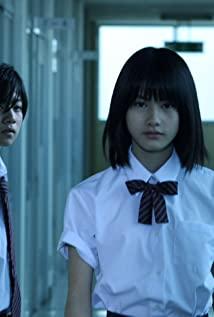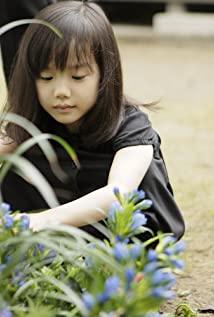Oh, what to say. I'm out of the mainstream again.
From a technical point of view, the structure and narrative method of "Confession" are very creative, and the willingness to analyze violence is also quite meaningful.
Unfortunately, the reason why I can only give two stars is that, in my opinion:
1 The triggering point of the event is not sufficiently convincing
2 The development process of the event does not conform to common sense and reality
3 The conclusion of the fable makes me emotionally unacceptable
Moriguchi-sensei announced who the student who killed her daughter was from the very beginning... If this is just a crime-solving film, the plot progress can be said to have no suspense at all.
And the good drama is actually behind... When Mr. Moriguchi announced that she had put HIV blood into the milk of sinners, she triggered a series of snowballing horrors and darker human confessions...
As she expected, Student A and Student B were therefore immediately marginalized by their classmates. They became the targets of the people in the terrifying and repressive atmosphere, and they became the scapegoats for all their disappointments.
The author obviously compares them to the lambs that bear the sins for everyone in Christianity: When Mr. Terada read this passage from the Bible to his classmates at the beginning of the new semester, everyone seemed to have an unprecedented spiritual liberation and couldn’t help cheering. . So the whole class participated in the punishment of A and B, and the collective violence intensified.
But violence is a whirlpool, waves of revenge hitting this cursed class time and time again. In addition to being used and ridiculed by the simple Sensei Terada and Sensei Sakuragiya who died of AIDS, the protagonists in the play are more selfish, cold-blooded, self-willed, and defiant, not to mention have any sense of social responsibility. Moriguchi is simply a crazy and black-bellied nemesis.
Although this may seem understandable to a mother who has lost a child, it is horrifying that a teacher can be so perverted, unconscionable and unscrupulous to torture the entire class...
From a certain level, the meaning of "Confession" is very close to that of the Palme d'Or at the Cannes Film Festival in 2009 and the "White Ribbon" directed by Michael Haneke: both films explore the source of violence, while the observed small White rats are also a group of teenagers who are immature and live in a highly depressing environment.
But "Confession" is far less profound and universal than the reasoning in "White Ribbon":
The violent trigger point in "Confession" is actually an irresponsible scientist, a lunatic mother... Student A is planning all this at a young age just for the sake of Proving my existence in my mother's eyes (ah! Another cheap Oedipus complex - Oedipus complex, but the father here is a waste, and my mother is both a mother and a father), which makes me feel very inadequate . Even if such a genius juvenile murderer is possible, it is relatively rare. More violence is not so cold-blooded. Such a sophisticated and useless criminal plan is more to cater to the curiosity of the reader/viewer.
Another clue in "Confession" is the guiding role played by the media in rendering violence. Teen A published his gizmo on his mother's university forum, but failed to attract everyone's attention. On the contrary, those posts about killing small animals have attracted people's attention. What's even more tragic is that when he won the invention award, his limelight was actually overwhelmed by the cruel Lunaxi girl crime case...
The curiosity of the media made him have the evil idea of making crime news by himself.
Hummm, that's right. Confession itself is a good example. Violent enough, cruel enough, bloody enough, curious enough, dark enough, perverted enough. So catch the eye.
What I can't get used to is the large-scale and beautiful music and pictures used by the director of "Confession". This has the potential to glorify violence. I believe that many people will like this movie because of its Japanese beauty (although this is not my thing, I want to doze off watching these MV-style scenes).
Therefore, when the director said that the purpose of making this film is to make everyone cherish the meaning of life more, I can only silently doubt that some children who have been influenced by this film will only become more curious and hope to experience it for themselves. The same stimulation.
Remember when the Korean movie "Old Boy" inspired the Korean criminal in the Virginia Tech shooting case... Will "Confession" have a similar effect?
I've always been naive (perhaps too naively) to think that the world today is violent enough and bloody enough that adding fuel to it will only lead to greater chaos. Artists don't have to describe perversions as excusable. We may not need to use the illusion of creating a "harmonious society" and use "education of love" to brainwash young people, but we don't need to rush to the opposite extreme and applaud works that beautify the ugliness of human nature.
Just like what boy B said, "there is no feeling of living", when people are stimulated by violence, they do have the illusion of existence... But in fact, the stimulation from bloody violence and death exploration is only a thousand ways to realize oneself It is the cheapest and lowest level among them, and it is also the most vulnerable one... Unfortunately, it is also the one that is easiest to bribe young audiences.
In addition, Mr. Moriguchi's lynching of her enemies like this should have catered to many people's dissatisfaction with the law and social injustice. But let's just imagine, if juvenile delinquents A and B were given to the police to teach them, maybe they would have avoided so many lives and immature minds...
PS: Well, after a while, I should really take care of myself. Just read Violence and the Sacred and Scapegoat by René Girard.
View more about Confessions reviews











